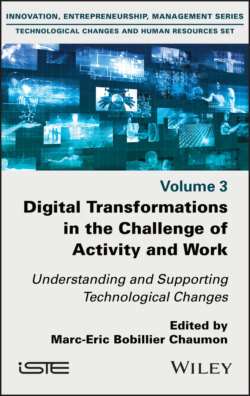Читать книгу Digital Transformations in the Challenge of Activity and Work - Группа авторов - Страница 28
2.2.2. Mobilizing social capital to make sharing more flexible
ОглавлениеSocial capital is defined as the set of relationships that can be mobilized by an individual or a group and can be considered to be a resource that is comparable to economic capital. It is based on a principle of solidarity that makes it possible to give information to colleagues. It is based on cooperation dynamics that exist outside of formal procedures (Bourdieu 1980; Alter 2009).
In these cross-functional, asynchronous and multi-professional work contexts, the manager’s role as an arbitrator tends to disappear. This translates into a net increase in the decision-making autonomy of the employee, who must then develop new, less cognitive and more relational skills (self-esteem, social skills, decision-making autonomy, also known as “soft skills”). Indeed, not only must one learn and acquire knowledge, but also learn to cooperate in order to work in a group according to the specific modalities of social networks: to show oneself on the network, to know how to manage one’s visibility and to organize one’s interactions and presence (Cardon 2008). Professionals are then enjoined to show flexibility and reactivity by mobilizing their social capital (Lazega 2006) via DESN functionalities that promote social and interactive (interacting, posting a comment) and cognitive (problem solving) dimensions in mediatized collaborative environments (Détienne et al. 2010). The objective is to develop innovation and social links, to improve production quality and to capitalize knowledge (Galinon-Mélénec 2010; Conaldi and Lomi 2013).
Finally, the DESN is more than just a technology. It becomes a collaborative partner in the service of value creation that stems from all the networking and co-configuration mechanisms in which professionals can participate. However, from the point of view of work activity, these mechanisms pose major challenges for professionals. We are witnessing a loss of the centrality of activities and a reconfiguration of the conditions surrounding the power to act.
